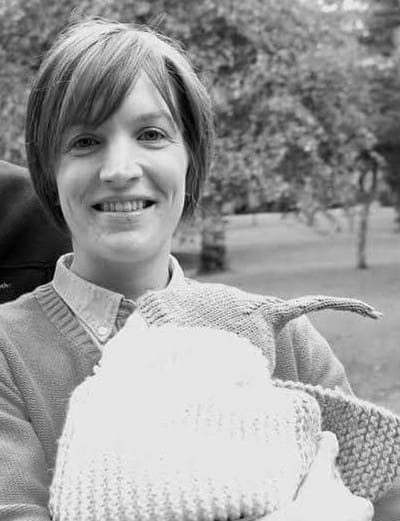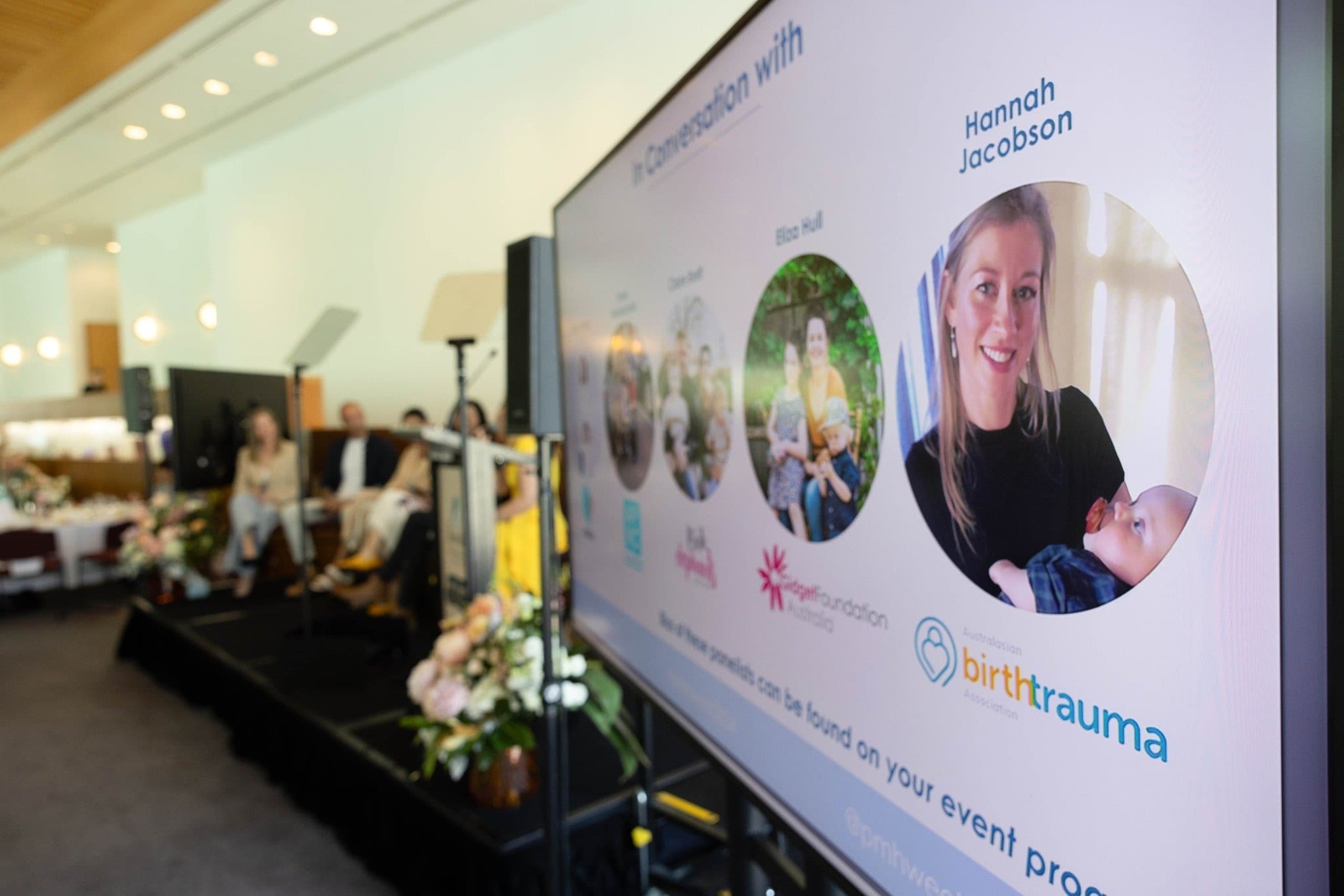It took 18 months for me to receive a diagnosis of PTSD following my traumatic birth. I’m sharing my story to help others feel less alone and to encourage birthing people and their partners to seek help when their birth leaves them feeling traumatised.
I had so many hopes about my birth and ideas about how it would play out. And when things didn’t go to plan, I felt confused about everything that had happened. I just didn’t feel right. And I worried that the physical and emotional impacts of the birth trauma would have a huge impact on the rest of my life.
I had expressed to my obstetrician that if I could avoid it, I didn’t want to have any medical interventions during the birth. So, I was shocked and angry when he broke my waters without discussing it with me first. In hindsight, this is the point where I realised that my autonomy was not being respected and power was being taken away from me. This continued when I was
told to start pushing. It felt forced. I had no urge to push, but I did what I was being told to do.
When it became apparent that my baby was struggling with each contraction, the midwives and obstetrician were looking concerned, but no one was talking to me. I had no idea what was happening. And then the doctor said, to no one in particular, ‘I’m going to use forceps.’ No one explained to me what a forceps delivery would be like, how it would play out and what I should expect. I felt like I wasn’t part of the birth anymore. I was just having things done to me. I was terrified, and so was my partner – he had no idea what to do. The experience of the forceps was excruciating. I hadn’t had any pain relief, so I felt like my body was being ripped apart. And not having anyone talk to me to explain the procedure or comfort me while it was happening was difficult. I felt incredibly alone.
When our baby was safely delivered, attention turned to our new son. Everyone was happy, and I was happy as well. I think that’s when the problems started for me because I had a healthy baby, and I was “healthy”. People kept telling me that. But I spent the whole night crying. I didn’t feel right.
I was confused about why I was so distressed. I didn’t know why I felt that way. I didn’t know why it had happened that way. There were so many thoughts, feelings and memories running around in my head that I could not reconcile. I told the night shift midwife that I was really teary. She said, ‘That’s normal’ and so I didn’t feel able to elaborate or say anything more about it.
I found myself struggling as the night went on. I didn’t sleep all night. I just cried. I kept mulling it all over in my head. It kept playing on repeat. I could hear my own screams in my head as they pulled this baby out of me. It was on repeat.
I also found it difficult when midwives changed over their shifts. They would reel off who I was and what had happened right in front of me without care, ‘This is Hannah, forceps delivery’. You just keep hearing it over and over, but it was said in a way that had no acknowledgement of the impact on me. It didn’t feel like I could talk about how I was feeling because it felt mundane and insignificant to them. It felt like what I was thinking about the birth was wrong, and I must have just been blowing it out of proportion. Maybe I was just weak?
During my hospital stay, I started to notice that I felt completely disconnected from my pelvic floor; I could not control wind or bowel movements or walk without discomfort and heaviness.
The challenging thoughts, symptoms and crying continued when I got home. I cried every day for three weeks. I was very good at hiding it. I have a history of not showing my emotions and hiding my anxiety, and just going on as if everything was okay. But even when mentioning to caregivers that I had been crying and that I felt traumatised, I didn’t feel that enough was done to get me the help that I needed. Too much responsibility was placed on me to take the next step, but I was in such a state of confusion I was completely unable to do that. I was asked by different caregivers, ‘Do you think you need to see someone?’ But I always answered ‘No’. The experience kept staying with me, though. It was in my mind. Those long nights up with the baby it was on replay in my head. I kept wishing that something would happen to me so that I could go to the hospital and be cared for.
While I had suffered from depression before, what I felt after the birth was different. I couldn’t figure out what the feeling was and why it wouldn’t go away, and I certainly couldn’t articulate it to anyone else. I was constantly overwhelmed by feelings of guilt, shame, jealousy, and anger. But I thought I would be okay. I thought I just needed time.
When I was eventually referred to a local mental health service, I didn’t have a good connection with the counsellor and felt no better after several sessions, I didn’t feel we were on the right track so I stopped going.
I turned my focus to my physical health, thinking that if I could understand my physical symptoms, I would feel better. I sought out several different practitioners, including a women’s health physio and two urogynaecologists for treatment of my pelvic floor symptoms – a side effect of my forceps delivery. I just kept searching for the care and acknowledgment that I so desperately needed. Once again, I felt a lack of empathy and compassion from those who treated me. The physio told me after months of seeing her and working tirelessly on strengthening my pelvic floor that I had a prolapse and there was nothing I could do to fix it. There was no acknowledgement of how this might impact me – a 30-year-old woman who still wanted to exercise and play with my kids.
My emotional health continued to suffer, and I ended up going back to my GP to ask for another referral to a different pelvic health specialist. My GP finally recognised that I was struggling, and she told me that she thought I might be looking in the wrong place for help – meaning that I needed to turn my focus to my emotional health. I started by reading ‘How to Heal a Bad Birth’ which was such an amazing starting point for me – for the first time, I felt that I wasn’t alone in this, that what I was going through was real, and there were steps that I could take to get better. After reading the book I found a psychologist in my local area who specialised in birth trauma, and working with her changed the course of my life. For the first time since the birth, I felt seen, heard, and acknowledged. My son was 18 months old when I got my PTSD diagnosis, and we started working on that together.
Just to have someone listen and say, ‘What happened to you is real, your feelings are valid, you have a right to feel this way, and I’m going to help you get through it,’ was life-changing.
The impact of this traumatic birth on my life has been enormous, and the difficult feelings and experiences surrounding it will never go away. What I have learnt is how I can lessen their impact on my day-to-day life, how I can use that experience to feel stronger and help others, how my life can continue to grow and change around those feelings and that they don’t need to dominate my existence or overwhelm me.
The most important thing is to find people to support you; keep looking until you find the right people. You may need to work on yourself for years to overcome this, but it is possible; there are amazing people out there who can help you. Don’t struggle through. Don’t give up.
ABTA offers a range of Peer2Peer support services and resources available for anyone needing to discuss their birth experience. This includes fathers, partners, family and friends.




